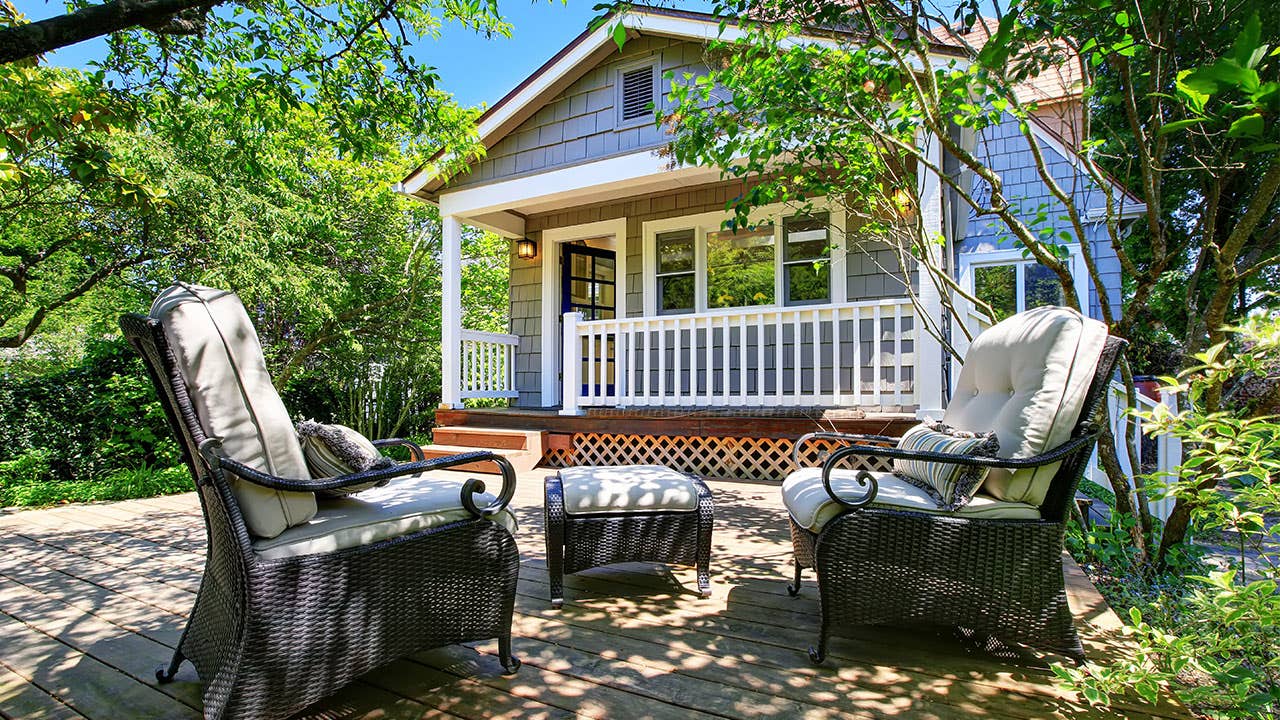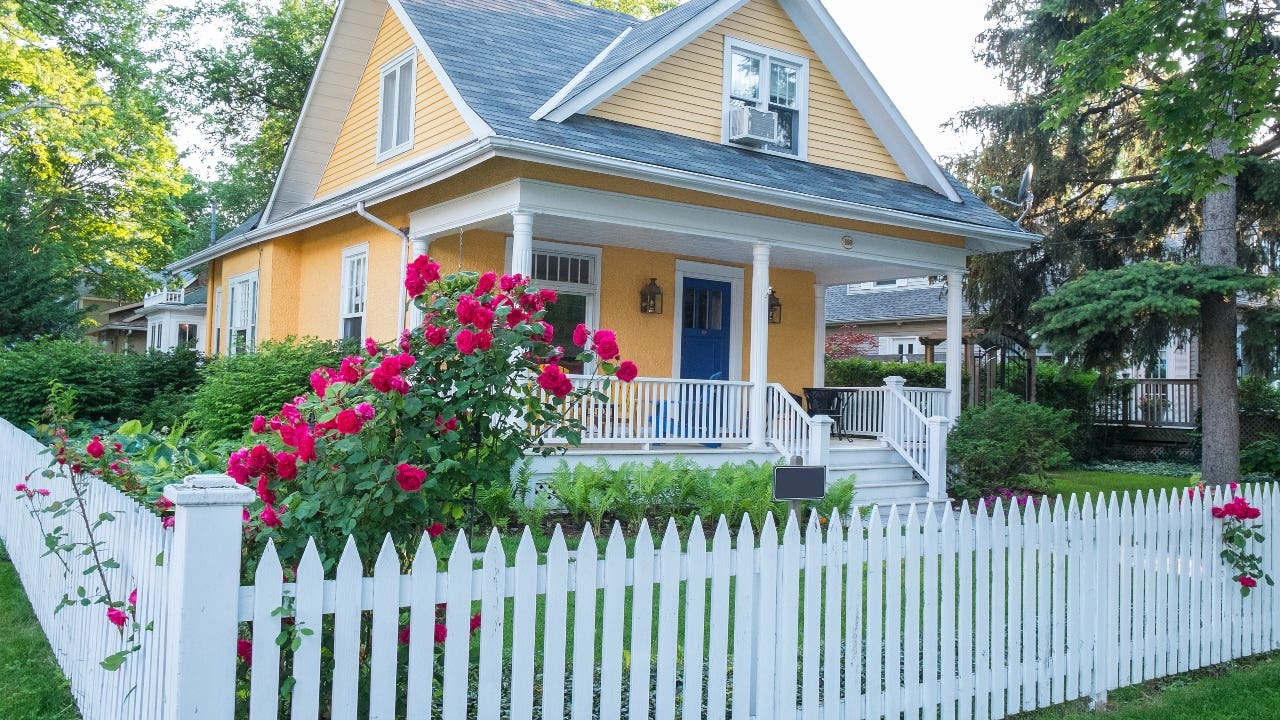
Generation Z is easily superseding millennials as the next crop of consumers. Born between 1997 and 2012, this group is starting hitting the marker which makes them old enough to vote, visit college and move out of childhood bedrooms and into homes of their own.
Gen Z homebuying statistics
- Gen Z currently comprises just 2 percent from the homebuying and selling market, according to the Nar (NAR).
- Close to 60 percent of Gen Z respondents to some March 2022 Bankrate survey associated proudly owning with experienceing this American Dream. For the reason that same survey, only 9 percent of Gen Z respondents reported never attempting to possess a home.
- Forty-three percent of Gen Z respondents to a June 2022 Radian survey plan to buy a home within the next five years.
- More than half (56 percent) of Gen Z respondents to an October 2022 Apartment List survey anticipate reducing payment the aid of family.
- The typical age of a first-time homebuyer is 33 years of age, according to NAR. The oldest members of Gen Z are actually Twenty five years old.
Gen Z homeownership: Obstacles and opportunity
Rather than continue to rent during work-from-home lockdowns, many in the Gen Z cohort retreated to some home. Actually, more than 80 % of adults who moved along with a parent or gaurdian or grandparent during the initial COVID wave were part of Gen Z, based on an analysis by Zillow — a trend that plenty of millennials also followed.
The pandemic wasn’t the only issue for Gen Z, though. For all those who’ve recently graduated, student education loans continue to strain finances. Seventy-four percent of Gen Z respondents to some March 2022 Bankrate survey reported delaying financial decisions, including purchasing a home, because of student loan debt.
As home values skyrocket and home loan rates begin to climb, prospective Gen Z homebuyers are actually grappling with saving more for any down payment while paying escalating rent prices. In 2022 — when some of these buyers were just finishing senior high school — the median sale cost of a home in the U.S. was $313,000. Now, it’s $428,700.
Let’s not forget inflation and also the broader potential storm clouds for a recession that may create another set of headaches with this generation, too. With one of these headwinds, it’s easy to understand why Gen Z might not be rushing to get a mortgage, despite many having a desire to become a homeowner.
When time does come to buy, however, Gen Z is likely to put their tech savvy to use. Sixty-seven percent of Gen Z homebuyers would think about using an application or an online service to make their purchase, based on a June 2022 Homie survey. That doesn’t mean that Gen Z won’t likewise use traditional avenues like working with a real estate agent, however it entails they’ll be looking for convenience — think all-digital mortgage applications, e-closings and more.
Top Gen Z housing markets
Gen Z has a lot to deal with as first-time homebuyers. Their finest bet may be in a single of those top cities for first-time homebuyers in 2022, ranked by Bankrate:
- Pittsburgh, Pennsylvania
- Minneapolis, Minnesota
- Cincinnati, Ohio
- Kansas City
- Buffalo, New York
Tips for Gen Z homebuyers
1. Don’t feel pressured
While you might be anxious to get into a home now, the insane price run-up during the pandemic can’t continue forever.
“Waiting to buy can be a prudent course,” says Greg McBride, CFA, chief financial analyst for Bankrate. “For young upwardly-mobile professionals, your wages over the next few years may come to be home prices. Using the recent surge in price appreciation, we may see home prices stagnate for a long time. In the event that happens, would-be buyers come with an chance of their earnings and funds flow to catch up.”
2. Consider your financial troubles load
If you've student loan debt, you may be reluctant to undertake more with a mortgage. Tackling that first might in fact be the better course.
“You may be better off spending a few years knocking out some of that student debt,” says McBride. “With federal loans at zero percent, now is a great time to create a lot of headway from the balance. Simultaneously, you can invest in your career mobility and try to build up your savings. This way, whenever you do decide to purchase a home, you can afford one that you intend to be in for some time.”
That brings us to…
3. Get clear on your goals
A home is a major investment, so consider where you want to live and what type of property you want before you buy — and become ready to live there for a while. Should you didn’t make a good enough deposit to start and haven’t built much equity through appreciation, it’ll be harder to pay for the closing costs to sell.
“If you’re not planning to be there for at least five years, there isn't any guarantee that you'll emerge ahead,” says McBride. “It’s important to remember that purchasing a home is a long-term proposition.”
4. Widen your house search
With a good budget, flexibility is key. Instead of searching for a single-family home with a backyard inside a sought-after neighborhood, for example, expand your home hunt to other options or areas.
“Maybe explore other local townships that may have more affordable pricing, or consider condos and townhomes to start,” says Judy Chin, a Realtor with RE/MAX Villa in Nj.
5. Look for help
The disadvantage to being a young homebuyer: You will possibly not be earning much money yet. However, that can actually help you qualify for down payment assistance.
“Local and state programs can provide great financial aid for first-time homebuyers to assist with deposit, closing costs or any other costs associated with a house purchase,” says Pete Boomer, executive v . p . at PNC Bank.
Check out Bankrate’s listing of first-time buyer programs by state to understand your choices.
About this PAGE
- Gen Z homeownership: Obstacles and opportunity
- Top Gen Z housing markets
- Tips for Gen Z homebuyers








